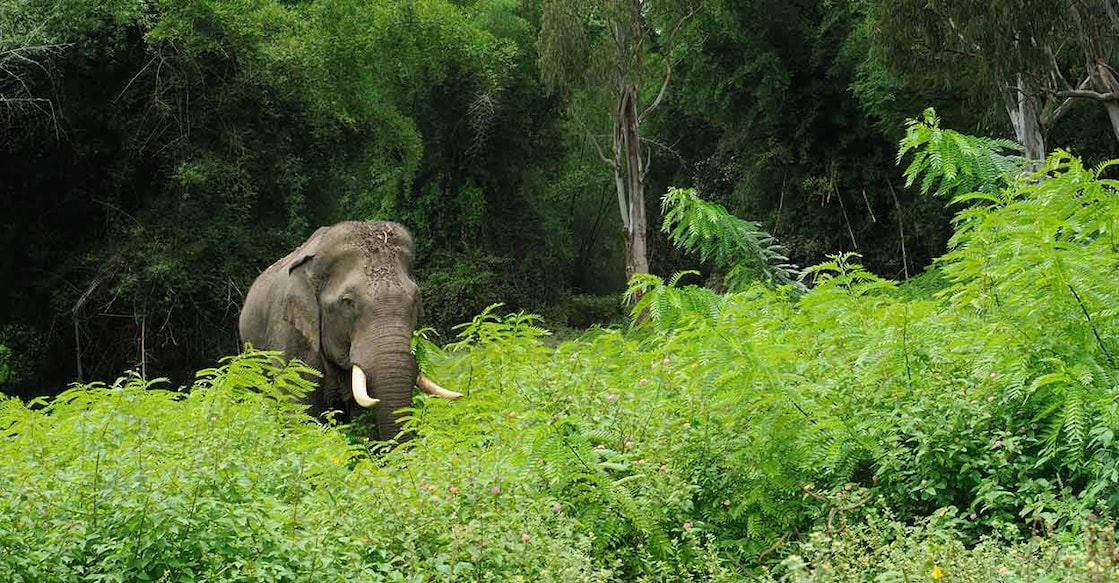Three-day synchronised elephant estimation in south Indian states; Census held in 4 Kerala reserves

Mail This Article
Wayanad: In a concerted effort to obtain accurate data on elephant populations across southern Indian states, Kerala, Karnataka, Tamil Nadu, and Andhra Pradesh have collaborated on a three-day synchronised elephant census, which commenced on May 23.
In Kerala, the census encompassed four elephant reserves: Wayanad Wildlife Sanctuary (WWS), Anamudi Elephant Reserve, Periyar Wildlife Sanctuary, and Nilambur Elephant Reserve. Over 1,300 forest staff, field watchers, and volunteers from various non-governmental organisations (NGOs) participated in the Kerala census, despite challenging weather conditions.
The field assessment comes amid scrutiny of the 2023 census data, which indicated a decline in recorded elephant numbers alongside a surge in crop raids by elephant herds. According to the 2017 census, there were 3,322 elephants in the state, but this number dropped to 1,920 in 2023. These discrepancies have raised concerns about the accuracy of the census methodologies.
The methodology includes various techniques such as direct counts, dung counts, and observations at waterholes.
Elephants, known for their continuous movement, traverse extensive distances daily in search of food and water. Experts note these animals travel a minimum of 16-20 kilometres every day and up to 180 kilometres during migratory periods. This behaviour underscores the importance of regional collaboration in conducting the census to accurately assess elephant populations, said Kerala Chief Wildlife Warden D Jayaprasad.
"The exact figures from a foolproof census would help minimise the apprehensions of people that there is a steady increase in the number of elephants. Our team had discussed this with our counterparts in Karnataka and Tamil Nadu,” Jayaprasad said.
"Elephants are migratory animals. An elephant seen in a border wildlife zone in Wayanad might be spotted the very next day in another wildlife zone in Karnataka, and then it could move to Mudumalai Wildlife Reserve in the adjacent Nilgiris in Tamil Nadu. All elephants seen by us do not belong to our own landscape, as they frequently crisscross forest borders in search of fodder and water," he added.
According to forest department records, from 2000 to 2023, the WWS alone has witnessed 45 fatalities due to wildlife attacks from 2000 to 2023. From 2010 to 2023, 26 individuals lost their lives in the region, with 18 of these deaths caused by elephant attacks. Additionally, 106 people sustained injuries from wild animal attacks within the sanctuary during this period.

